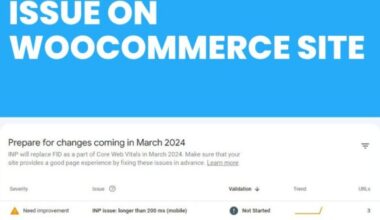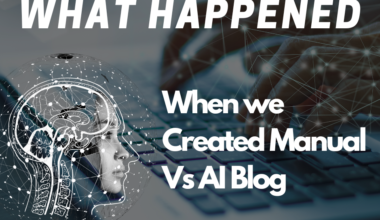Table of Contents
ToggleWhy Focus on The Target Audience for Google Ads

Who is the Audience?
When it comes to marketing, audiences are those customers who are wandering in the open market [physical & digital], who are researching and gaining pieces of information on related products/services, and who will or can consider buying things in which your business deals.
Is there a need to determine an Audience?
Determining a list of target sectors is necessary to get placed on the phone’s feed of the target segment to get better and more possible results.
With this practice, it helps your business to stand in front of your potential buyers digitally when they are looking/ searching for your products or services on either google search or on maps.
Determining an Audience helps your business to focus precisely on a particular domain instead of wandering in an open area.
Anyway, it’s better to pay for results rather than pay for everything.
However, with a target audience, it becomes easy to understand the intent of your customers which in turn helps to strategize personalized ads for various phases a customer reaches.
Besides getting a particular niche to focus on, determining an audience helps too in remarketing or nurturing a prospective customer.
Join hands together with Google Ads to find the right customers
No matter whether you are a small business owner or a big fish in the market, getting on with Google Ads will always prove to be a win-win situation for businesses. Why? Because you can have the leverage of catching the eyeballs directly who are looking for products/services your business deals in.
Clean Dashboard?
Yes, it is. With the changing Google’s algorithm, Google Ads provides you the haze-free target to strike and pitch to get a quality lead. It assures reaching the right set of people at the right time, at the right place as mentioned before.

Hold on Budget & Campaign
Google’s algorithm knows everything about your choice. Data and servers of Google provide you with the information related to choose, taste, preference, desire, intent, demographic, status, and much more to get into the niche of the target segment. Which makes the business cater only to those who are looking for the product/service. With this, Google Ads handover the wheels of budget and google ads campaign to the business user.
Better awareness & more conversions
No matter how new or aged are you in the market competition, with the shift of people getting more active and reliable on digital data, it is necessary to get into the digital cloud space too. People nowadays search online rather than physically approaching. It’s best to prove your worth by catching more eyeballs by getting on Google’s first page. The ranking increases the chance of getting more clicks, better awareness, and potential conversions.
How does Google targeting work?
How to target the audience on google ads?
Google Ads provides various data on the audience to filter down the customized segment as per the business nature. It provides data like where they live, what they like, their taste, choice, preference, their need, interest, what are they looking for, what are they planning for, etc.
On the basis of these data, one can determine their target audience and hence can get fruitful conversions and results.
On the basis of Demographic location
You can determine your Persona for your business using the demographic information and can customize your ads fulfilling their pain points with a solution for it. It involves information like Physical location, language, choice and taste pattern, age, gender, parental status, and household income.
On the basis of keywords, Topic & Placement targeting
Topic targeting is also a key factor in the determination of a potential target audience as it decides to get placed on the website, apps, or videos which are resonating with the content the audience wants.
Placement targeting pimples that your business gets the leverage of placing specifically on the website, app, or video as per its need and choice. Above all, you can even target competitor’s audiences on google ads.
Keyword targeting of course implies targeting on the basis of the search volume a keyword has and its relevance to your business. Google ads Keyword planner suggests the relevant keywords to target for better reach and more clicks.
On the basis of google ads remarketing
Remarketing helps the business to advertise to people who have either visited your website or app or who are there in your CRM data. It helps the business to develop a relationship with a customer as well as a sense of trust building.
It’s just like why reaching new customers, leverage and uplift your existing customers and makes them feel valued. Also, remarketing helps to target the segment of people who have a similar nature and interests.
If you don’t reach the right group of people, you can’t expect your ad campaigns to work. You’ll end up wasting ad spend with nothing to show but low conversion rates, or worse—unqualified leads.
Are you able to build concrete billboards from the marketing and media spent on your business?
Google Analytics today is used by millions of businesses to draw insights from the data caught by the website. It is necessary to know how to measure, evaluate, conclude and plan actions according to the website’s data.
How do Google Ads work? Don’t worry we have got your back. At Mind Huntz get customized performing action plans framed with the intent of User Engagement only.
Don’t get stuck between a rock and a hard place. Mind Huntz can sail your website on Google’s first page within 24 hours.
Wonder how? We have the fusion of a marketer’s mind and experienced leaders who create and manage effective paid strategies for Lead Generation and sales for websites every day.
Drop us a mail at info@mindhuntz.com or call us at 9182647697 and we will get back in touch with you soon.



